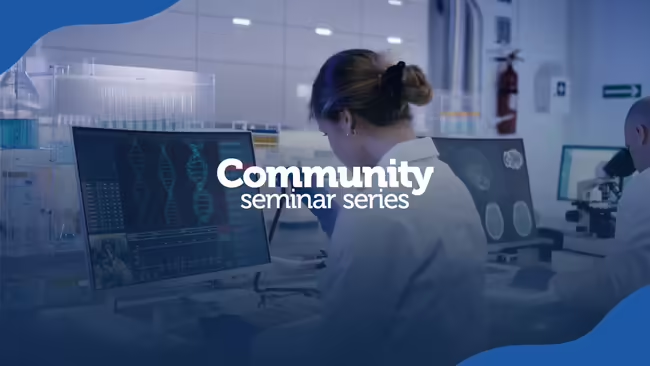
Unpack the implications of today's technology.
What if you could search and replace parts of your DNA? Genome editing is no longer in the distant future. Using CRISPR technology, scientists can activate or inhibit functions of various genes to better understand and cure diseases. Explore genome editing’s technology and potential to save lives, consider its unintended consequences, and discuss the moral and ethical impacts it could have on society.
Presenter: Apurva Godbole, Ph.D. Student, Chemical and Biomolecular Engineering, University of Illinois
If you need a reasonable accommodation to participate, please contact Dee Walls at walls1@illinois.edu. Early requests are strongly encouraged to allow sufficient time for meeting access needs.
About the Series: Springtime Science
Gain research-based insights into complex health issues as experts from University of Illinois deliver forward-thinking, holistic solutions for addressing today’s health challenges in this free online series. The Community Seminar Series is hosted in collaboration between Illinois Extension and Interdisciplinary Health Sciences Institute.
Register in advance to attend any or all of the online workshops that begin at noon.
- Registration is required.
- Workshops are free to attend.
- CEUs are available for a fee through the Continuing Education Institute of Illinois (CEII).
- Register for workshop sessions and continuing education units prior to the program date.
- Post-session CEU registration will not be available.
Explore Additional Webinars in the Springtime Science Series
COVID-19 Infodemic: Managing Medical Misinformation | Noon March 1
The COVID-19 pandemic has brought with it an "infodemic" phenomenon: an overabundance of information – some accurate and some not – that makes it hard for people to find trustworthy sources and reliable guidance when necessary. Learn more about this phenomenon and discuss ways to prevent, detect, and respond to misinformation.
Presenter: Carolina Carvalho, Ph.D. Candidate, Industrial Engineering, University of Illinois
Emergency Medicine: Perspectives from a First Responder | Noon March 8
Emergency Medical Services (EMS) can be a complicated system for prehospital care, with many lines of communication needed to care for someone experiencing a medical emergency. Speaking with a first responder or 911 dispatcher can be nerve-wracking, especially during an emergency. Learn more about how EMS works, how to advocate for yourself and your loved ones when interacting with 911 dispatchers and first responders, and what information to have ready in case of an emergency.
Presenter: Maxwell Wallace, EMT and M.S. Student, University of Illinois
Rethinking the Weight-Centered Health Paradigm | Noon March 22
Does a healthy weight always mean a healthy body? Not necessarily. And yet, thinness and weight loss have been framed as gateways to health in many cases. When we fail to achieve the ideal weight, we blame ourselves for a lack of willpower. However, the cause of obesity is complex and weight-centered interventions have shown mixed results for health promotion. Explore the complexity of obesity and discover what we know so far from weight-centered health interventions.
Presenter: Ru Liu, M.S., R.D., Division of Nutritional Sciences, Cornell University
Beneficial and Dangerous Microbes in Our Food | Noon March 29
While we may associate microbes in our food with harmful outbreaks of foodborne illness, microbes can play a positive role in our diet and even be a source of food themselves. Take a tour of the most common harmful, and helpful, microbes we encounter in our food and learn about how we can even harness the power of microbes to end world hunger!
Presenter: Sneha Das, M.S., Microbiology, University of Illinois
Debunking Common Myths in Psychology and Neuroscience 2.0 | Noon April 5
We’re back to bust more psychology and neuroscience myths! Dive into questions about multitasking and attention, as well as brain plasticity and the integrity of our memories. Missed the first session? Catch up any time by watching the first session on this topic from the fall 2022 Autumn Health Picks series.
Presenter: Grace Clements, Ph.D., Beckman Institute for Advanced Science and Technology, University of Illinois
Polypharmacy: Effects of Multiple Daily Medications | Noon April 12
Studies show that more than 131 million people or 66% of adults use prescription medication every day. Polypharmacy, or the consumption of multiple medications daily, increases a patient’s risk of experiencing adverse reactions and drug-related health problems (DRPs). Examine the cost and effects of polypharmacy on health records, multimorbidity, and various populations — and discuss equity in implementing standardized prescribing programs.
Presenter: Erica Noel, M.S., Health Communications, University of Illinois